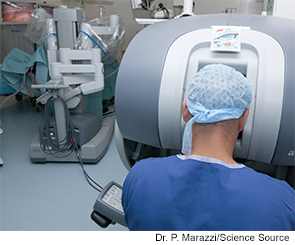Transoral robotic surgery (TORS) is expanding to include patients with HPV-related cancers.


Transoral robotic surgery (TORS) is expanding to include patients with HPV-related cancers.
Although the incidence of post-TORS hemorrhage is low, large tumors, perioperative anti-coagulation, and prior radiation are associated with significantly increased risk of this event.
The advantages of TORS for early stage OPSCC may be a lower likelihood of postsurgical positive margins and subsequent need for adjuvant chemoradiotherapy.
Upper airway stimulation (UAS) is successful in treating obstructive sleep apnea (OSA) showing improved outcomes, length of stay, and readmission compared to transoral robotic surgery (TORS).
TORS BOT reduction decreases AHI and symptoms of sleepiness in adult patients with OSA
Patients who underwent UPPP±T without DISE did not show a statistically significant difference in outcomes compared to the patients who underwent DISE with other procedures, including TORS
TORS deemed safe, effective for lingual tonsillectomy, base of tongue resection procedures in benign diseases, including obstructive sleep apnea
How effective is an algorithm for rapid discharge after transoral robotic surgery (TORS), and what is its effect on postoperative complications?
How do survival estimates for transoral robotic surgery (TORS) compare to intensity-modulated radiotherapy (IMRT) for early T-stage oropharyngeal cancer?
